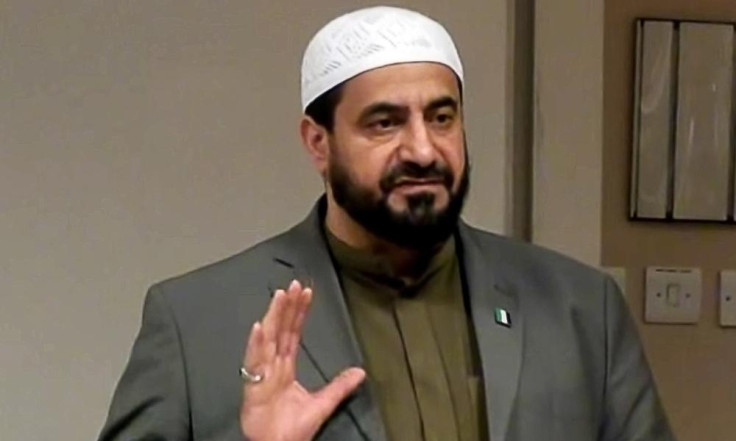Abdul Hadi Arwani: Imam's death shocks Acton Muslim community

An atmosphere of unease and shock hung over the mosque where murdered Imam Abdul Hadi Arwani used to teach in west London.
Located in the same community where embattled Syrian dictator Bashar al-Assad's in-laws still live, individuals at the An-Noor Masjid mosque – housed inside the Annoor Cultural and Community Centre – refused to speak about the unexplained killing of a man worshippers remembered for his opposition to President Assad in the on-going bloody civil war.
In a printed statement pinned on the front door of the building, mosque officials testily rebuffed all enquiries about Arwani's time there, which came to a sudden end some years back for reasons that remain murky today. The Centre noted his death with "great sadness".
Prior to the 48-year-old's death, Arwani would speak out against the conduct of Assad's forces in the conflict and also Islamic State.
At a nearby mosque – also called Masjid – around the corner from the Alnoor centre, shock at Arwani's death was voiced by one community elder who met him from time to time. Mr Khan, general secretary of the Mosque committee, hailed a "kind man." He told IBTimes UK: "It is a shock. How could this happen? How could they do it?"
Paying tribute to Arwani, worshipper and Acton Town resident, Sohail, 18, said his bloody death had stunned the community. He contradicted a claim by the An-noor mosque that Arwani quit his post in 2011 – instead placing his departure in 2013, in line with other reports.
"He was a big part of the mosque for more than five years and so this is shocking to everyone in the community," Sohail told IBTimes UK.
"We talked to him sometimes in the mosque and he was really kind to everyone. He was a good guide who spoke the truth and that's what he liked."
Arwani was not always lambasting Assad's conduct, recalled Sohail, but when he did speak up, it made an impression.
"There are many people who think what Assad's doing is very bad; us as Muslims know that," said the teenager. "He was speaking out for the oppressed. I think that's why it happened."
No motive has yet been ascribed by the Metropolitan Police to Arwani's death – least of all political assassination. A murder enquiry has also been launched.
"Detectives retain an open mind regarding the possible motive," a Scotland Yard spokesman said.
The shabby and unassuming building housing the mosque that Arwani used to lead is easy to miss in Church Road. It sits in the shadow of a housing estate and across the street from an NHS health centre.
But it sprung to notoriety in 2013, when it was at the centre of a well-publicised security blunder. Worshipper Mohammed Ahmed Mohamed donned a burqa and fled Britain from under the noses of UK security services, who were supposed to be keeping an eye on the suspected militant.
At this time there is no link between Arwani's activities at the Acton mosque and his death. Instead, there is stupefaction, as voiced by Arwani's family. They have spoken of being "mystified" by the father-of-six's killing, dismissing rumours of a politically motivated assassination.
Daughter Elham Arwani, 23, told the Standard: "We have no idea what happened. We don't even know how he was killed. We have just been told he was killed and that's it.
"Any Syrian who is free and who knows the truth is against Assad. It's not going to be because he was against Assad. It must be for another reason, but we can't think of anything."
© Copyright IBTimes 2024. All rights reserved.







